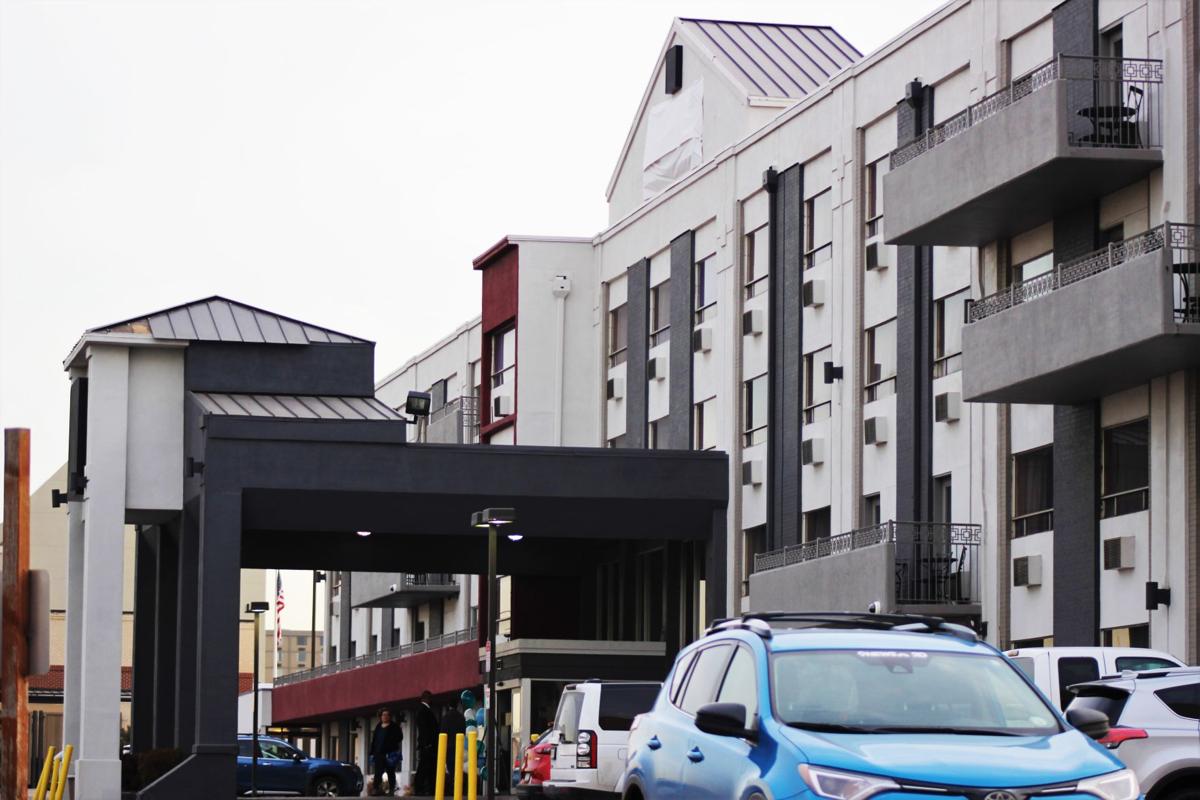What was once a hotel in northeast Denver will now be a haven for the homeless.
Fusion Studios, formerly a Quality Inn & Suites, will this month begin filling 139 microapartments for individuals and couples who are experiencing or at risk of homelessness. The newly renovated property on Quebec Street in Park Hill was unveiled during a news conference this week.
“The project was really born out of desperation,” said John Parvensky, who has headed the Colorado Coalition for the Homeless since 1985.
“We were scratching our heads trying to figure out how we can shorten the time period so that the people who are on the streets tonight have a place to call their home as quickly as possible.”
The development could provide a source of relief for some of Denver’s unhoused population, who are caught in a fallout from the city’s urban camping ban. The ban was recently ruled unconstitutional by a Denver County judge but is still being enforced by the city, pending an appeal.
The repurposed building was developed by the Renaissance Housing Development, an arm of the Colorado Coalition for the Homeless. The move-in ready apartments will provide transitional and long-term housing and require residents to pay no more than 30% of their monthly income in rent.
“This really shows what we can do when we get creative about problem solving and affordable housing,” Gov. Jared Polis said after touring the facility, which he called an “example of cutting through the red tape … at a teeny fraction of the cost of building something new and a teeny fraction of the time.”
Normally, it takes two to three years to create a housing unit, start to finish, Parvensky said. But Fusion Studios only took six months to revamp, marking the quickest affordable housing option he said has ever been established in Denver.
Each room of the former hotel starts at 300 square feet and includes a private bathroom and kitchenette. All units are furnished with a bed, dresser, desk and chair, television, microwave and minirefrigerator. A food pantry also is available for residents.
Twenty-five of the units will be designated for temporary, or bridge, housing for people “needing stability” prior to moving into permanent housing.
The Colorado Coalition for the Homeless is working with partners, such as Denver Health and the Metro Denver Homeless Initiative, to identify residents to fill the rooms over the next month.
Units will be filled on a “rolling basis,” said coalition spokeswoman Cathy Alderman, as some residents come and go.
She also said that case managers will work onsite to provide support to residents, including connecting them with health and behavioral health services.
The property has 24-hour security staff and front desk attendants, as well as a full-time property manager, an assistant property manager, housekeeping and maintenance staff.
Fusion Studios received a bridge loan from Northern Trust to acquire the former hotel by $8.4 million. The Denver Housing Authority’s D3 Bond Program Funds provided nearly $5 million in permanent funding, as well as more than $4 million from the Colorado Division of Housing and $3 million from the Colorado Department of Human Services.
Project-based vouchers were awarded by the Division of Housing and DHA, and bridge vouchers were awarded by the Denver Department of Economic Development and Opportunity.
The Wells Fargo Foundation also provided $150,000 for supportive services to new residents.
“I truly hope we can replicate this model and these partnerships at other sites in Denver and get more of our people housed affordably,” said Britta Fisher, executive director of Denver’s Department of Housing Stability (HOST).
Pending City Council approval, Denver’s housing department will provide additional funding for supportive services for future residents of the building.


